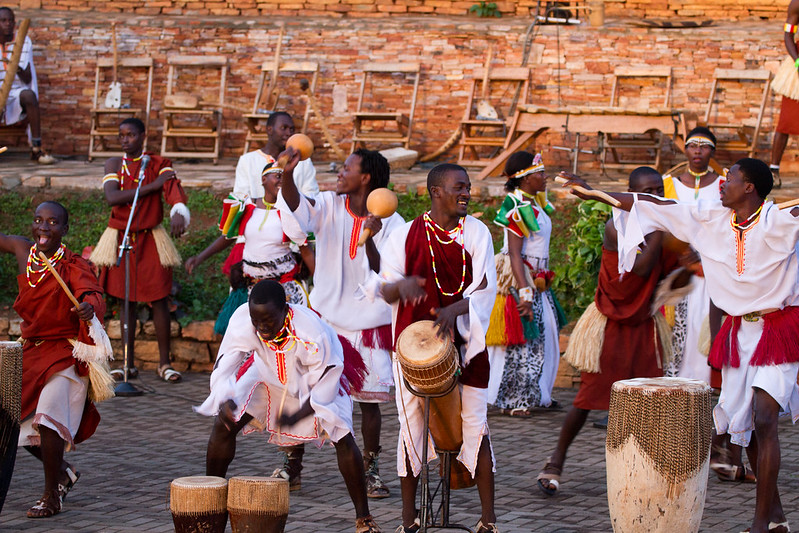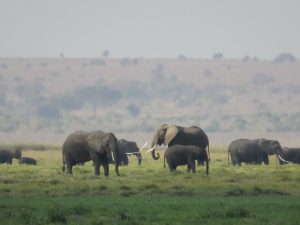Cultural Encounters: Immersing Yourself in the Traditions of Rwanda and Uganda”
Overview:
Traditions of Rwanda and Uganda. A safari in Rwanda and Uganda is not just about wildlife; it’s also an opportunity to immerse yourself in the rich cultural heritage of East Africa. Both countries offer unique cultural experiences that allow you to connect with local communities, learn about traditional practices, and understand the history that shapes these nations today. In this post, we’ll explore some of the best cultural encounters you can include in your Rwanda-Uganda safari.
Rwanda’s Resilience and Tradition
Rwanda’s cultural experiences are deeply intertwined with its history, offering visitors a profound understanding of the country’s resilience and traditions.
Kigali Genocide Memorial
A visit to the Kigali Genocide Memorial is a sobering but essential experience for anyone traveling to Rwanda. The memorial pays tribute to the victims of the 1994 genocide and serves as a powerful reminder of the country’s dark past and remarkable recovery. Guided tours provide in-depth insights into the events that took place and the steps Rwanda has taken toward reconciliation and peace.
Iby’iwacu Cultural Village
Located near Volcanoes National Park, this cultural village offers a hands-on introduction to Rwandan traditions. Here, you can participate in traditional dances, learn about the art of drumming, and even try your hand at spear throwing. The village is also home to former poachers who have turned to conservation, offering a unique perspective on the country’s efforts to protect its wildlife.
Traditional Crafts and Dance
Rwanda’s traditional crafts, such as the intricate Agaseke baskets, are a symbol of the country’s rich cultural heritage. Visiting local markets or craft centers provides an opportunity to see these artisans at work and purchase unique souvenirs. Traditional dance is another vital aspect of Rwandan culture, often performed during ceremonies and festivals, with the Intore dancers being the most famous.
“Visiting the Kigali Genocide Memorial is a deeply moving experience that provides insight into Rwanda’s history and resilience. For a more interactive cultural encounter, the Iby’iwacu Cultural Village near Volcanoes National Park offers a chance to engage with local traditions, from drumming to traditional dance.”
Uganda’s Diverse Tribes and Traditions
Uganda is known for its cultural diversity, with over 50 tribes, each with its own customs, languages, and traditions.
Batwa Community Experience
The Batwa, also known as the “Pygmies,” are one of the oldest indigenous communities in Africa. Living near Bwindi Impenetrable Forest, the Batwa have a rich history as hunter-gatherers. A visit to a Batwa community offers a rare opportunity to learn about their traditional lifestyle, from fire-making techniques to medicinal plant use. The Batwa cultural experience also includes performances of traditional songs and dances, providing a deeper understanding of their connection to the forest.
Karamojong People of Northern Uganda
The Karamojong are a semi-nomadic tribe known for their unique way of life and distinctive dress. Visiting a Karamojong village in northern Uganda offers insight into their pastoralist culture, including their traditional cattle-keeping practices, vibrant dances, and intricate beadwork. The Karamojong are also known for their elaborate initiation ceremonies, which play a crucial role in their society.
Ndere Troupe in Kampala
For a more accessible cultural experience, the Ndere Centre in Kampala offers regular performances by the Ndere Troupe. This group showcases the music, dance, and storytelling traditions of Uganda’s various tribes. The performances are lively and engaging, providing a great overview of Uganda’s cultural diversity in one setting.
“Visiting the Batwa community near Bwindi offers a rare glimpse into one of Africa’s oldest cultures, where you can learn about traditional hunter-gatherer practices. In contrast, a visit to the Karamojong people in northern Uganda provides an in-depth look at a unique pastoralist way of life.”
Festivals and Ceremonies
Both Rwanda and Uganda celebrate their cultures through vibrant festivals and ceremonies, many of which are open to visitors.
Umuganda in Rwanda
Umuganda, which takes place on the last Saturday of every month, is a nationwide community service day. Participating in Umuganda is a unique way to engage with local communities and contribute to the collective effort of building a better Rwanda. Whether it’s planting trees, cleaning public spaces, or repairing infrastructure, Umuganda embodies the spirit of unity and collaboration that defines modern Rwanda.
Imbalu Circumcision Ceremony in Uganda
The Imbalu ceremony is a significant cultural event among the Bagisu people of eastern Uganda. This rite of passage marks the transition from boyhood to manhood and involves traditional circumcision rituals. The ceremony is accompanied by vibrant celebrations, including drumming, dancing, and feasting. Visitors are often welcomed to observe the festivities, providing a unique cultural insight.
Kigali Up! Music Festival
This annual music festival in Kigali celebrates both local and international music, bringing together artists from across Africa and beyond. The festival is a great way to experience Rwanda’s contemporary culture and enjoy a lively atmosphere of music, dance, and art.
“Participating in Umuganda, Rwanda’s monthly community service day, offers a meaningful way to connect with locals and contribute to the country’s development. In Uganda, witnessing the Imbalu circumcision ceremony among the Bagisu is a powerful cultural experience, showcasing the deep traditions of the region.”
Conclusion:
Cultural encounters in Rwanda and Uganda add depth and richness to your safari experience, offering insights into the traditions, history, and ways of life that define these countries. From engaging with local communities to witnessing vibrant festivals, these cultural experiences will leave you with a deeper appreciation of East Africa’s diverse heritage. So, when planning your Rwanda-Uganda safari, be sure to include time for these enriching cultural connections.




